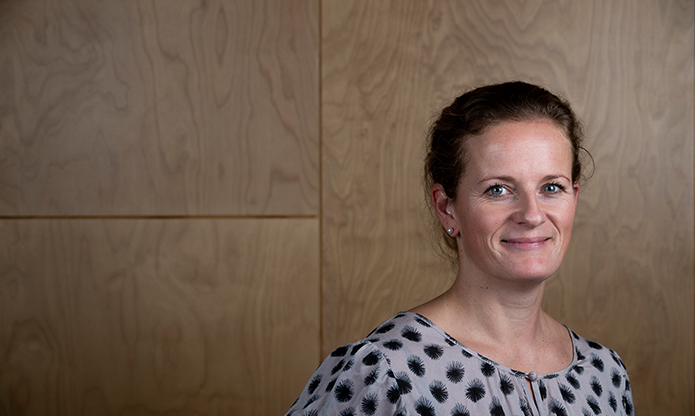The Novo Nordisk Foundation has awarded a grant of DKK 10 million to Karen Schreiber, a doctor and Associate Professor at the Danish Hospital for Rheumatic Diseases, to investigate whether the antimalarial drug hydroxychloroquine can help to improve the pregnancy outcomes of women with antiphospholipid antibodies.
Pregnancy often causes complications for women with antiphospholipid syndrome (APS), in which their immune system produces antiphospholipid antibodies which interact with the body’s own cells.
Women with antiphospholipid antibodies and APS have a much higher risk of preeclampsia, recurrent early pregnancy loss, intrauterine death and fetal growth restriction because the placenta does not function properly.
Thirty percent of women with APS have pregnancy complications, and since up to 7% of all women have antiphospholipid antibodies in their blood, this potentially affects many women and many pregnancies globally.
Women with antiphospholipid antibodies and APS are typically treated with aspirin and in some cases also with the anticoagulant heparin, both of which have improved pregnancy outcomes. However, the antimalarial drug hydroxychloroquine may also improve the pregnancy outcomes for these women and potentially increase their chances of giving birth to a healthy child.
Based on an Emerging Investigator research grant of DKK 10 million from the Novo Nordisk Foundation’s ambitious Research Leader Programme, Karen Schreiber will carry out a major research project to confirm whether hydroxychloroquine can improve the pregnancy outcomes of women with APS.
“If hydroxychloroquine has the effect of which we have seen indications, this could be a big change for many women around the world. This may increase their chances of having a healthy baby and starting a family, which is one of the most precious things in most people’s lives,” explains Karen Schreiber.
Major European study
The grant will enable Karen Schreiber to complete a major randomised multicentre trial across Europe, for which the team aims to include 328 pregnant women with antiphospholipid antibodies and to randomise them to either hydroxychloroquine or a placebo. The researchers will then assess whether the women treated with hydroxychloroquine have fewer cases of involuntary pregnancy loss, preeclampsia or low birth weight.
Karen Schreiber explains that the results of the study may revolutionise treatment if the women treated with hydroxychloroquine have fewer pregnancy complications.
“This is the first and only study worldwide to investigate the potential of treating women who have antiphospholipid antibodies or APS with hydroxychloroquine before and during pregnancy. The grant from the Foundation is indispensable for carrying out a trial of this size,” she says.
Giving researchers freedom
Four university hospital treatment centres in Denmark will have a special role in the trial, collecting blood samples and samples from women’s placentas and subjecting them to state-of-the-art examination. The aim is to advance researchers’ knowledge on antiphospholipid antibodies andtheir role in pregnancy and understanding how hydroxychloroquine affects the underlying disease mechanism.
Karen Schreiber expects that, by 2027, researchers will know whether hydroxychloroquine can improve the pregnancies of women with antiphospholipid antibodies and APS and how exactly hydroxychloroquine works.
The grant also means a lot at the personal level.
“This is a very big step in my career. I will have the freedom to complete a major trial that can help to boost my career,” says Karen Schreiber.
Grants awarded to 44 researchers
The grant to Karen Schreiber is part of the Foundation’s Research Leader Programme and has been awarded under the Clinical and Translational Research theme.
The Foundation has just awarded DKK 428 million to 44 researchers through the Programme, which supports the development of research leaders carrying out research within health, disease and sustainability. Grants under the Clinical and Translational Research theme accounted for 10 of the 44 grants awarded.
See the other nine grant recipients within this theme here and read more about the 44 grants awarded in 2022 here.

